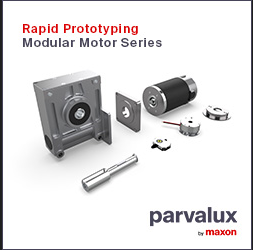Quality Control in CNC Machining
When it comes to CNC machining manufacturing, fractions of inches can make the difference between a successful product and losing a customer. There are several ways to promote quality control (QC) in CNC production. This post will explore some of these.
What is CNC Machining Quality Control?
Quality assurance is the process used by CNC machining companies to aid in measuring the quality of the products made on CNC equipment.
Achieving Quality Control in CNC Manufacturing
CNC machining companies are used for contract manufacturing and rapid prototyping services. Tolerances must fall within microscopic limits. For example, an oil line valve is less than 1mm larger than specified. If used, the result could be thousands of new cars that leak oil. Similar unwanted and unexpected results can happen in the aerospace, ship building, appliance, and other industries. Avoiding these errors is the point of quality control.
The first thing to help ensure quality control is being sure your equipment can make the product or prototype needed. CNC equipment includes grinders, routers, and milling machines. Buy equipment from a reputable dealer, if buying or leasing used equipment be sure to request a warranty.
One of the most important things manufacturers can do for maintaining high-quality is frequent calibration and following a maintenance protocol. Machines can lose their calibration from vibration, being jarred and other incidents on the factory floor. Many maintenance protocols fail to include the spindles on the CNC equipment. Making them an integral part of a maintenance program pays big dividends by reducing down time.
Conduct inspections using your own QC staff or have a tester come to your plant. Technology is quickly replacing and augmenting human inspections.
Record keeping is another strategy used by CNC shops to promote quality. Recording inspection results and displaying them in a chart or table provides QC personnel with an easy way to see data about any CNC machine on the factory floor and monitor them for common and unusual problems.
Implement a Predictive Maintenance Program (PDM). Sound PMDs covers reliability and maintenance, a machine tool variability management system, a program for failure mode and effective analysis.
Quality CNC machining is as good as the hands using the machine. Presently, there is a skills gap for factory workers including CNC operators. One way manufacturers can combat this skills gap is to form a partnership with a local school of higher learning and offer apprenticeships for future CNC operators.
Become and maintain ISO certification. For example, the ISO 9000 certification. Companies that have ISO 9000 certification improve the way their business functions by implementing better business processes, reduce scrap, reduce reworking of products and lowers costs. Moreover, ISO certification is an important tool for the sales and marketing staff. In addition, some ISO certified manufacturers demand that their suppliers also have certification.
When manufacturers have great quality processes in place everyone is involved in quality control. Producing high-quality products is an endeavor that starts on the executive floor and becomes a reality on the factory floor.
Featured Product

Rapid Prototyping with the Modular Motor Series
Quick to configure. Quick to build. Quick to deliver. Parvalux understands the importance of getting product in the hands of customers quickly and efficiently. The Modular Range does just that allowing customers to configure their own solution, selecting motor and gearbox, adding encoders and brakes to create a solution perfectly suited for their specific applications such as conveyor belt systems, picking systems, parcel sorting equipment, pallet shuttles and automated storage and retrieval systems (ASRS). Read our modular range guide for specifics.
